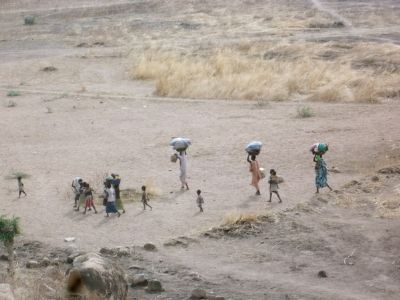The mandate of the Independent Expert on Sudan was established in June 2009 after the UN Human Rights Council failed to extend the mandate of the Special Rapporteur on Sudan. The Expert's mandate was initially set up under the Council's agenda Item 4 "Human rights situations that require the Council's attention". However, two years later in September 2011 the mandate was downgraded to Item 10 "Technical assistance and capacity‑building" which clearly shifts the focus away from the human rights abuses in the country.
On February 21, 2014 the Independent Expert released the preliminary observations of his visit. While he found that the Sudanese authorities have not issued their reports on "last year's oil subsidy demonstrations, which resulted in killings, injuries, arrests and detentions, and destruction of property" he also lauded Sudan's "expressed commitment to improv[ing] the practical realization of human rights in the Sudan".
The Sudanese authorities have a very good reason to misrepresent their intentions. The "technical assistance" Sudan receives depends on the improvement of its abysmal human rights record. The actual human rights situation in Sudan, however, remains grim. The Amnesty International 2013 report highlights the following abuses:
- "The government severely curtailed freedom of expression, using new forms of censorship, such as confiscating entire newspaper print runs; preventing the publication of articles or opinion pieces; banning certain journalists from writing for newspapers; and harassing editors in order to influence their choice of news coverage...Journalists faced arrests, torture and other ill-treatment by members of the NSS [National Security Services] and other security agents in Sudan...
Authorities continued to severely restrict freedom of assembly...From June to August, security forces used batons, tear gas, rubber bullets and live ammunition against largely peaceful demonstrators, causing deaths and injuries. Some women were reportedly subjected to repeated 'virginity tests', amounting to torture or other ill-treatment. Plain-clothed security officers, deployed in or near hospitals, arrested suspected demonstrators seeking treatment...
In May and July, two women, 23-year-old Layla Ibrahim Issa Jumul and 20-year-old Intisar Sharif Abdallah, were sentenced to death by stoning for adultery. In both cases, they were convicted solely on the basis of their confession, which was obtained under duress...
Grave human rights abuses continued throughout Darfur amid continued fighting between the government and armed opposition groups, and a breakdown of government control over government-affiliated militias. Attacks on civilians by pro-government militias, aerial bombings, and looting and destruction of property were widespread...Rape and sexual violence by government-affiliated militia and government forces continued...
Conflict...in Southern Kordofan and Blue Nile states, which erupted in June and September 2011, remained ongoing. From October, fighting intensified with indiscriminate attacks, including aerial bombardments...and resulted in civilian deaths and injuries... Indiscriminate aerial bombardments...resulted in over 200,000 people seeking refuge in South Sudan and Ethiopia."

